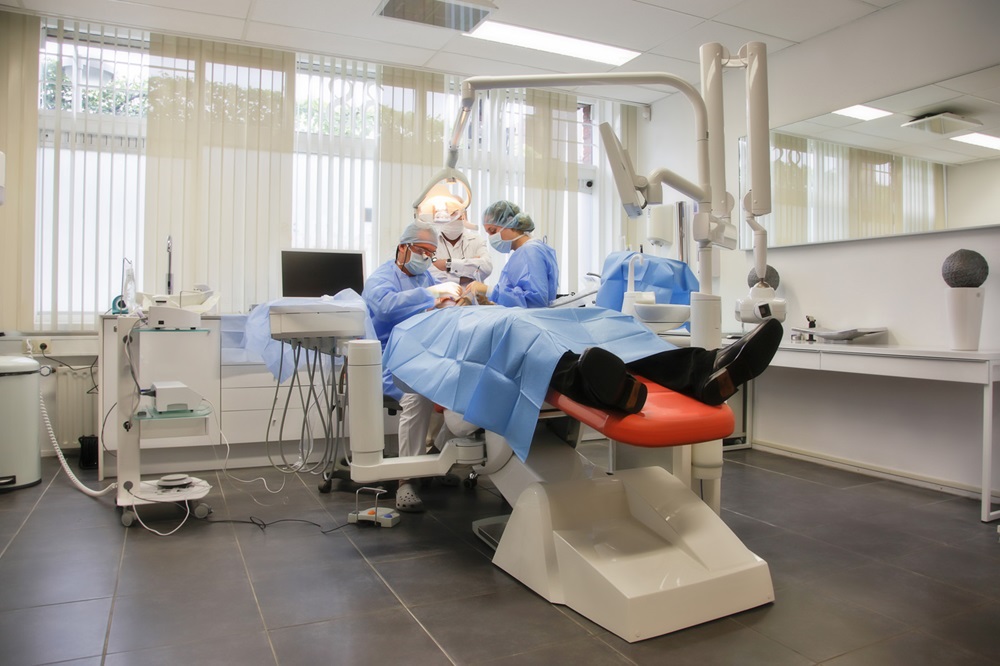Are you considering getting dental implants but don’t have enough jawbone to support them? If this is the case, your dentist may consider performing sinus lift surgery in Naples to improve your bone density in the area. This surgery is also known as a sinus graft. You will most likely be referred to a dental surgeon or periodontist who specialize in these complex treatments.
Have questions about this service? Contact our reliable team here at our local dental practice; we’re happy to assist you in any way possible.
Outlined below are some frequently asked questions about sinus lift surgery for dental implantation.
1. What is Sinus Lift Surgery?
Sinus lift surgery, also known as sinus augmentation, is a dental procedure that aims to increase the bone volume in the upper jaw, specifically in the area of the maxillary sinuses. The maxillary sinuses are air-filled spaces located above the upper molars. When these molars are lost, the sinus cavity can expand, leading to a reduction in bone height.
2. Why is Sinus Lift Surgery Needed?
Sinus lift surgery becomes necessary when there is insufficient bone structure to support dental implants. This can occur due to tooth loss, periodontal disease, or natural anatomical variations. Dental implants require a stable foundation, and the sinus lift surgery near you ensures that the implants have enough bone support for successful integration.
3. The Sinus Lift Procedure: Step by Step
- Preparation: The dentist in Naples will assess the patient’s oral health through imaging techniques like X-rays and CT scans.
- Incision: An incision is made in the gum tissue to expose the underlying bone.
- Lifting the Sinus Membrane: The sinus membrane is gently lifted, and bone graft material is placed beneath it.
- Bone Grafting: Bone graft material, often sourced from the patient or a donor, is placed in the space created to stimulate new bone growth.
- Closure: The incision is stitched up, and the healing process begins.
4. Recovery and Aftercare
Following sinus lift surgery, patients may experience some swelling and discomfort. Pain medication and antibiotics are often prescribed. It’s crucial to follow post-operative care instructions, which may include avoiding strenuous activities, maintaining oral hygiene, and attending follow-up appointments.
5. Potential Complications
Sinus lift surgery is generally safe, but complications can occur. These may include infection, sinus membrane perforation, or graft failure. Patients should be aware of potential risks and communicate any unusual symptoms to their dentist near you promptly.
6. Success Rate
When performed by a skilled oral surgeon and with proper post-operative care, sinus lift surgery has a high success rate. Dental implants placed after sinus lift surgery can provide long-lasting support and functionality.
7. What Happens After a Sinus Lift?
Most people only suffer a little discomfort once their sinuses have been lifted. You may experience edema. In the days following surgery, you may also feel some minor bleeding from your nose or mouth.
Try not to blow your nose or sneeze frequently after your operation. (We understand that sneezing is difficult to manage, so do your best to avoid anything that triggers this reaction) Sneezing and blowing your nose might cause the bone-graft material to shift and the sutures to become loose. So be cautious.
Need More Information? Call Us
Sinus lift surgery is a valuable technique that enables individuals with inadequate bone in the upper jaw to benefit from dental implants. If you’re considering this procedure, speak with our dentist at Naples Dental Arts Center to determine if it’s the right solution for you. Understanding the process, recovery, and potential complications will empower you to make informed decisions about your oral health.
Phone, email, or stop by our neighborhood dental office to set up an appointment today.

